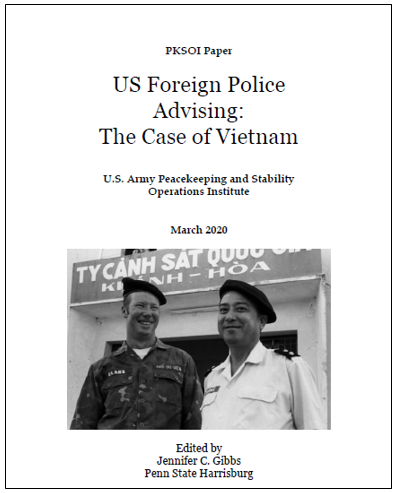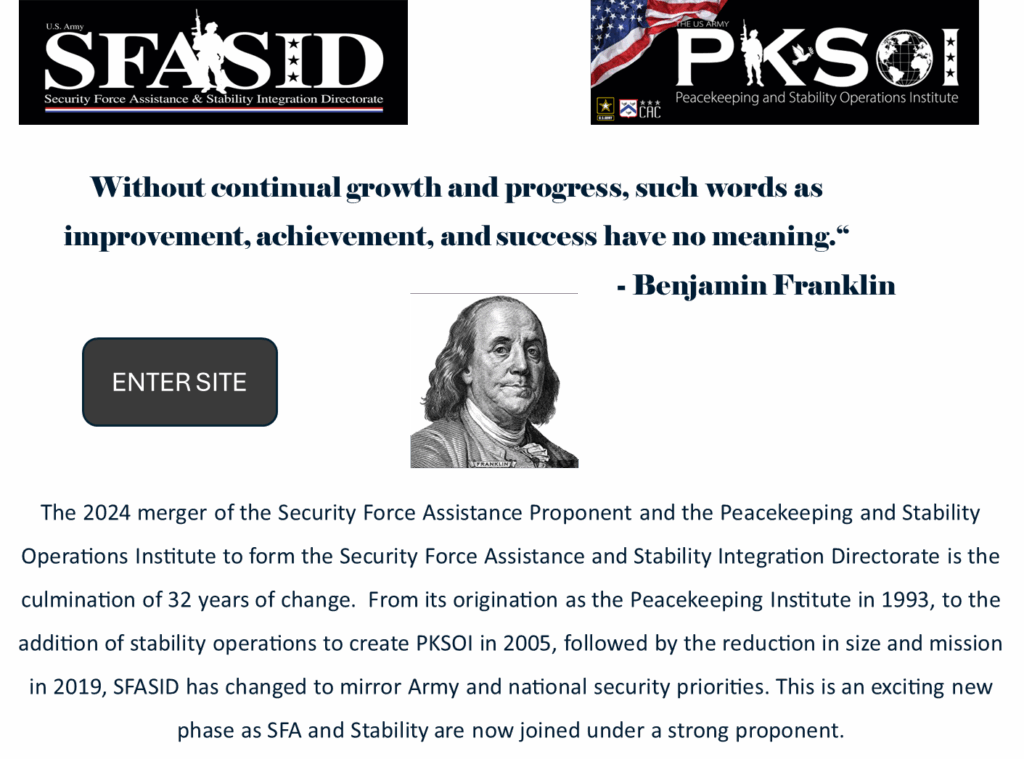US Foreign Police Advising: The Case of Vietnam

Foreign assistance in policing is not a new phenomenon, but often we fail to consider the past, while planning for the future. Since 1989, the role of the US in several stability operations has increased, such as: Panama (1989), Somalia (1992), Haiti (1994, 2004), Bosnia (1995), Kosovo (1999), Afghanistan (2001), and Iraq (2003). Additionally, US military and civilian organizations have been used to rebuild military and police forces and to provide logistics to international forces (El Salvador, 1991; East Timor, 1999). With the intention of avoiding past mistakes in future stability activities, we have endeavored to capture the lessons from Vietnam policing development. The operational environment in Vietnam was similar to Afghanistan and Iraq, in that police development was initiated during the conflict, in a dangerous environment that was difficult for civilian development actors to work in, thus requiring a large military police advising contingent. Police advising in what was then RoV also incorporated USAID and Central Intelligence Agency (CIA) advisors, as well as those from other countries, but that is beyond the scope of this anthology of lessons learned. The lessons derived from the US intervention in Vietnam have important implications for foreign advising today and in the future.
The genesis of this project stemmed from a unique opportunity to connect with the highly respected Colonel (COL) Charles Nguyen Tan Cuon, a retired police administrator from Vietnam. COL Nguyen was born in 1925 in Saigon, the son of the former Vietnam Minister of Security. With public service and safety in mind, he quickly rose through the ranks of the police force, holding several highly esteemed positions throughout his career and commanding over 5,000 police.
COL Nguyen’s policing experiences are unique. First, COL Nguyen was a police leader during peace and war times. He commanded a police force during the Vietnam War, where police were the first line of defense against insurgents, fighting and collecting intelligence for the military in addition to their regular duties of keeping order and responding to crimes. Second, COL Nguyen engaged with multiple foreign entities who were either fighting the Viet Cong, offering police assistance, or both. While managing his police units, he also negotiated with Australian forces in his district and worked with police advisors from the US, among other nations providing service to South Vietnam, officially known as the Republic of Vietnam (RoV) at that time. COL Nguyen developed a close relationship with some of his advisors, including Mr. Frank Clark from the US Agency for International Development (USAID). When Saigon fell, COL Nguyen fled with his family to the US, settling in Rockville, Maryland.
With his breadth of experiences leading various aspects of a police force during peace and war times, COL Nguyen has much to contribute to our understanding of policing, especially foreign police advising. His wealth of knowledge is particularly applicable to US foreign police advising today, given the US contribution to rebuilding police forces in Iraq and Afghanistan, as well as service to policing agencies in various other countries. Thus, the US Army War College organized a series of interviews with COL Nguyen and his USAID advisor, Mr. Frank Clark. Their experiences are interwoven with academic literature in the chapters to follow.
To read more click on the link or the download button below.
